Review of Familiar at Yale Repertory Theatre A funny, fun, and intense play about family, Danai Gurira’s Familiar, at the Yale Repertory Theatre, takes place on a lovely set replete with the comforts of home, and then proceeds to question the nature of home.
Directed by Rebecca Taichman, who last directed David Adjmi’s Marie Antoinette at the Rep, and written by Gurira, whose last Rep-produced play was Eclipsed, Familiar keeps before us elements that made those two plays work: clearly delineated characters, speech that does something, and, more than anything, the stakes of “keeping it together.” Any family, we might say, has undercurrents that can become unpleasant, that can pull it in different directions. Familiar takes us into the pleasant suburban Minnesota home of Marvelous and Donald Chinyaramwira, where we find at first the low-key family of so many sit-coms, featuring minor household struggles such as whether a modish portrait of Zimbabwe’s president Mugabe should hang on the wall, or, in its place, a dignified representation of a dog.
We soon learn there are wedding preparations afoot for eldest daughter, Tendikayi, who is marrying “White Guy,” as Nyasha, the younger daughter calls him, herself back from a life-changing visit to “Zim” (Zimbabwe) from which her parents hail, as does Margaret Munyewa, the aunt they invited, and Annie, the aunt who still lives in Zimbabwe and invited herself. The latter, who arrives as a comic blast from the past, full of self-importance about “tradition” and so on, brings as well a moment of truth that creates a kind of recognition scene not generally found in family comedies.
And that’s because, all along, Familiar has been working a subtle bait and switch. We think, for awhile, that this is all about assimilation to America and bad feelings about being reminded of “the Old Country.” Well-meaning youngsters may want to take on the latter’s trappings as lip service to “other ways” while enjoying their vantage of privilege—Tendikayi (Cherise Boothe) and her fiance Chris (Ross Marquand) kowtow to Aunt Annie (Kimberly Scott) and agree to a roora, a marriage preparation ritual that involves go-betweens, negotiation and something to do with cows. All of which is diverting enough, but that light-hearted play would let us feel as condescending as the elder generation here seems to be right from the start, and as bemused. Marvelous (Saidah Arrika Ekulona) and Donald (Harvy Blanks) are highly educated, articulate, full of conviction, but also defensively upper-middle-class Americans, as only people who know there is an abyss under things can be.
Gurira has scripted the kind of play where whoever holds the floor says something worth hearing, and key scenes simply entail others hearing it said. Annie gets a commanding speech that gives full weight to her view of what is being lost in the assimilative ways of her sisters. She speaks from an authoritative identity her two sisters know they no longer possess. This becomes even more dramatically the case when Donald explains his own feelings. Suddenly home is not where you are but where you must go.
And yet this is not a play about a triumphal finding of oneself again in the place one has left behind. None of us can really “go back.” We can travel in space but not in time and the picture of Mugabe, with its stylings from the 1980s, when he was the up-and-coming savior of his country, makes that clear. Nothing is so indicative of the passing of time as yesterday’s liberal, seeking power, becoming today’s conservative grasping to keep it at any cost.
The excellent cast make certain we believe in the past these characters have experienced. We have dropped in on them during a time when families are most vulnerable, letting in a stranger through marriage, and having to decide on the meaning of their past. Everyone here has an individual version of what family ties may assume and require, and everyone says what they have to say within a familial space. Even Chris’s younger brother, Brad (Joe Tippett), called in hurriedly to act as go-between in the roora, grasps at once that family bonds are at stake and becomes comically and dramatically important in a delightful Act I curtain.
Gurira’s script and Taichman’s direction are generous to these characters, giving everyone “a moment.” Aunt Margaret (Patrice Johnson Chevannes) plays the important witness character; wine-glass in hand, she is lesser than Marvelous as mother, as professional success, as personal force, but for that reason may still change; Boothe, as the would-be bride and success Marvelous would have her be, gets a funny bout of hysteria that registers the almost slapstick quality that dramatic changes can visit upon the unprepared; Marquand plays the well-intentioned, essentially passive “white guy” to a fault but even he steps up once his pants are undone, so to speak. As Nyasha, Shyko Amos is musical, forceful, a catalyst. She’s the free spirit still finding herself but she’s also not easily swayed by her sister’s relentless sense of purpose.
As the couple who try to live with hope for the future after a devastating event in the past, Marvelous and Donald convince us that there is too much water under the bridge to brook speaking of—until, with all cards on the table, it becomes time for the truth of where they are, right now. Ekulona gives Marvelous plenty of insistent command, but also thoughtfulness, and Blanks brings to Donald many small comic gestures that say much about his role in the house. As Annie, the embodiment of Zimbabwe, Scott is a force of nature sitting in her sister’s tasteful living room, a living reminder that there is very much a world “back there” that doesn’t go away simply because expats stop thinking about it.
And it’s there that the play becomes most fully of its moment—as the playbill proclaims, “a higher percentage of African immigrants have a college degree than any other immigrant group.” Thus “American Africans” experience a different America than do African-Americans, and, indeed, most other immigrants. That difference has to do with the bifurcated nature of living in two lands at once, to some degree, but it also speaks to the American effort to claim kin with our non-American source country while never going there.
To varying degrees, and particularly for those for whom assimilation meant losing a language, and an entire way of being weakly contained in the word “customs,” we are all haunted by somewhere else. That’s what makes the situation of the characters in Gurira’s strong and satisfying play so familiar.
Familiar By Danai Gurira Directed by Rebecca Taichman
Composers: Somi and Toru Dodo; Scenic Designer: Matt Saunders; Costume Designer: Toni-Leslie James; Lighting Designer: Joey Moro; Sound Designer: Brian Hickey; Dialect and Vocal Coach: Beth McGuire; Production Dramaturg: Carrie Hughes; Casting Director: Tara Rubin Casting; Stage Manager: Anita Shastri
Yale Reperatory Theattre January 30-February 21, 2015
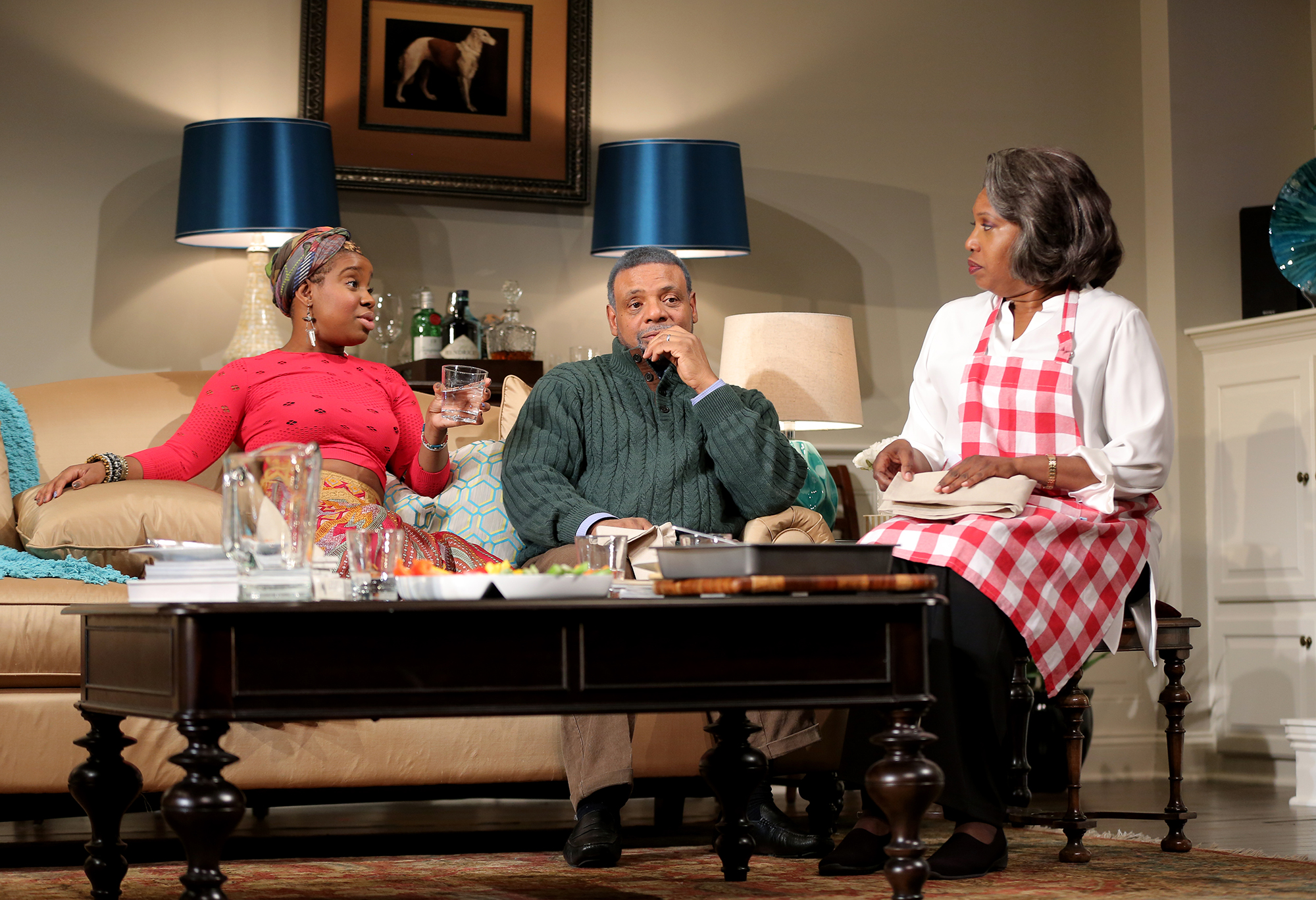

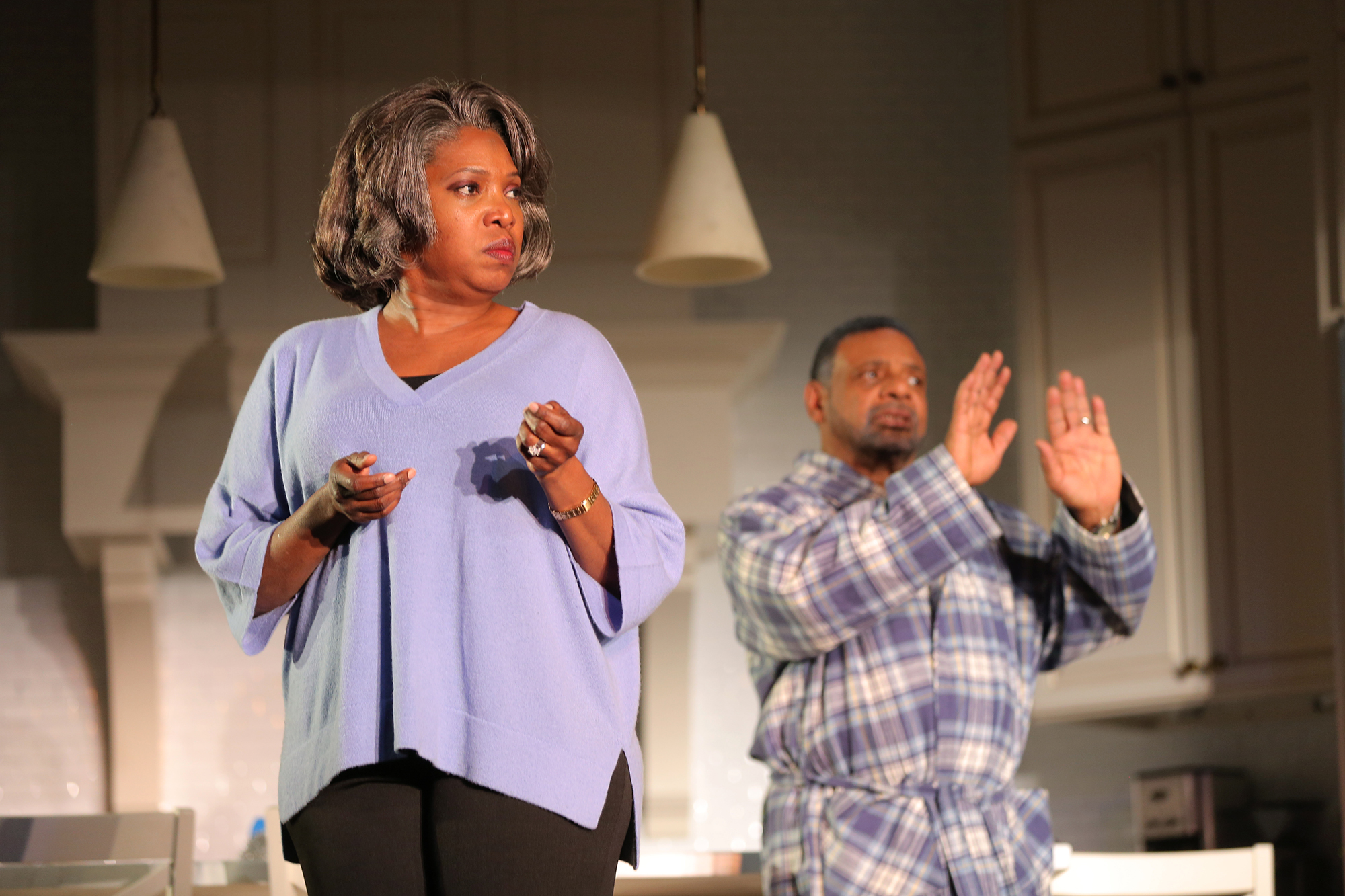
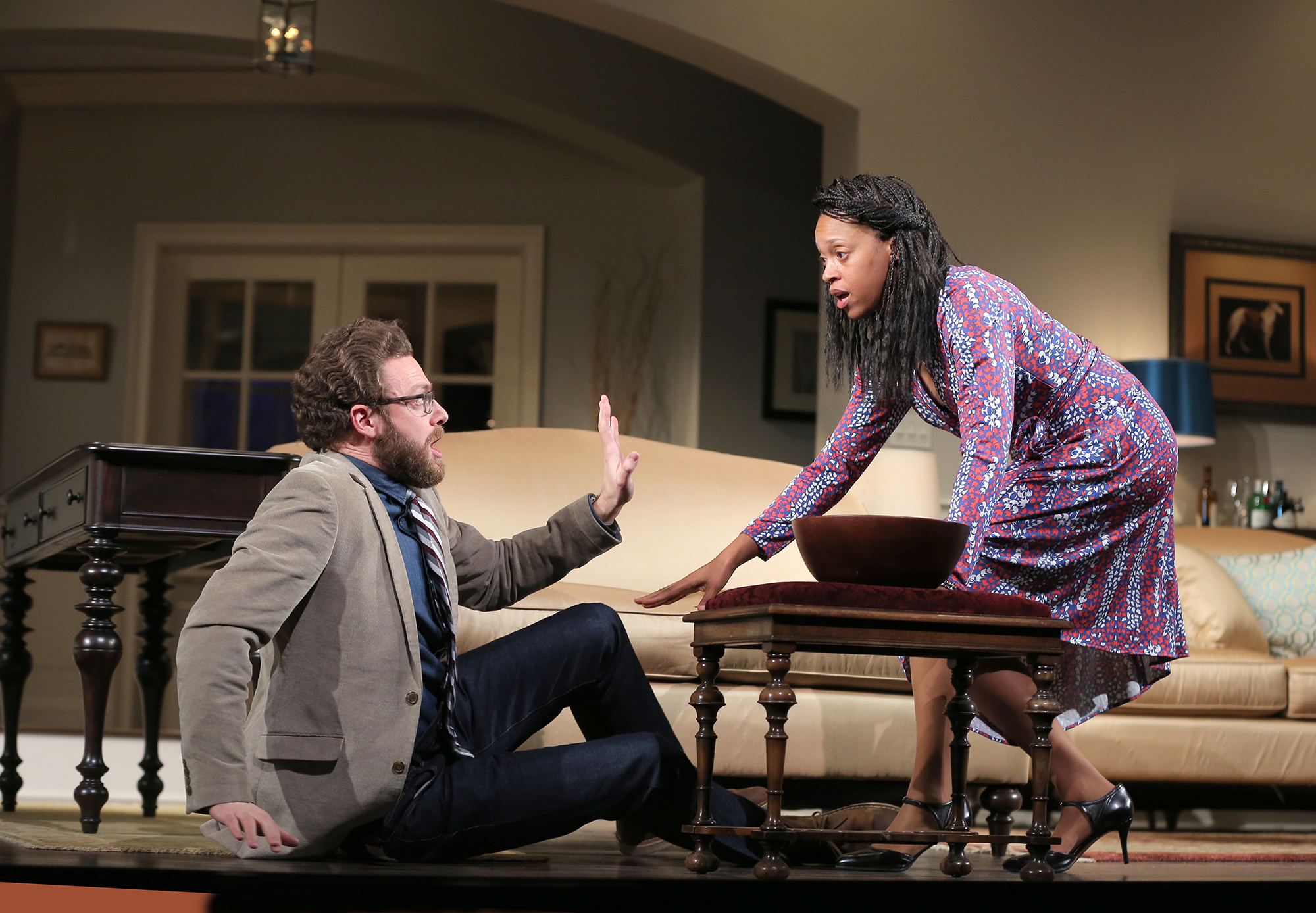
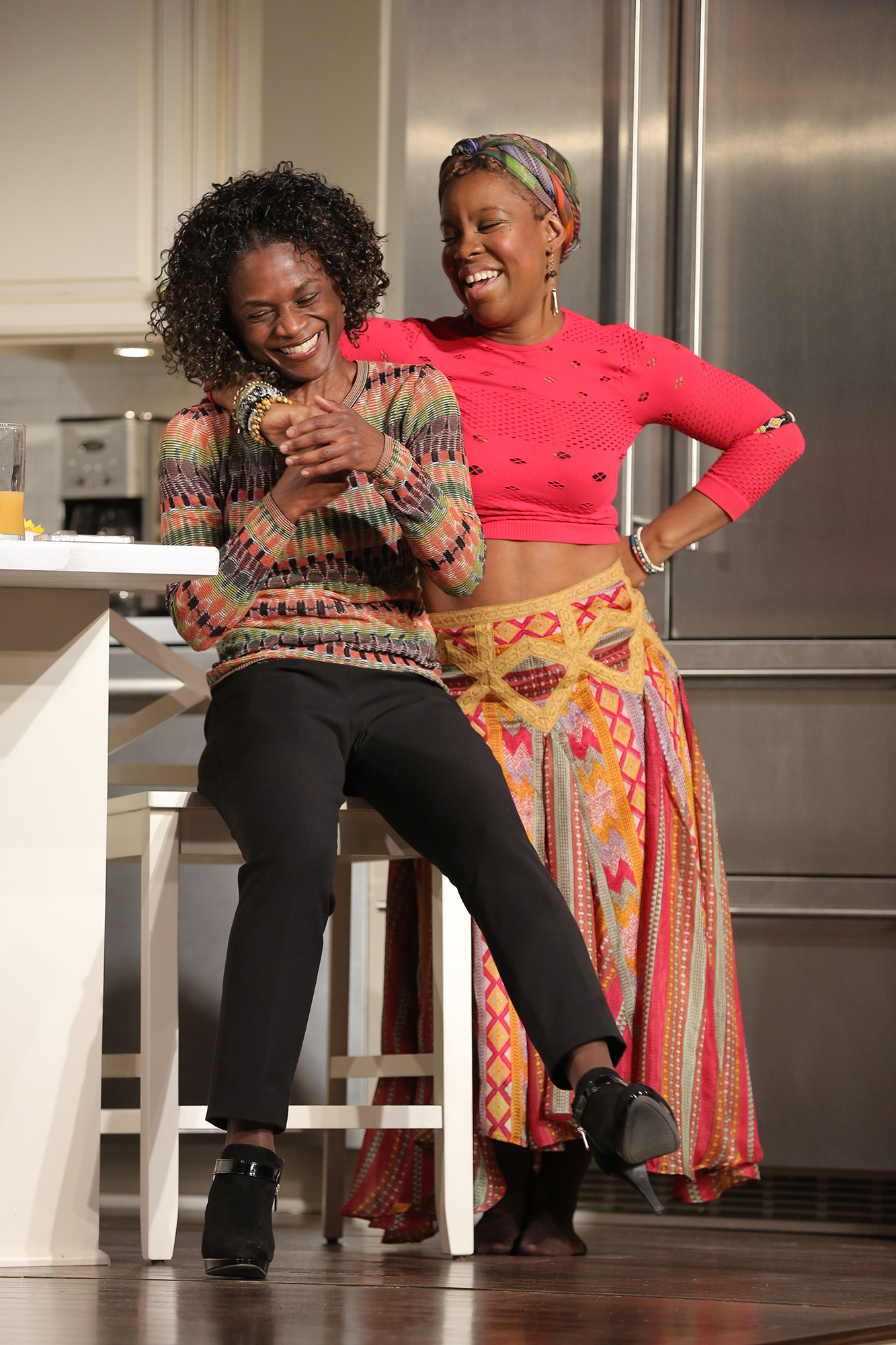
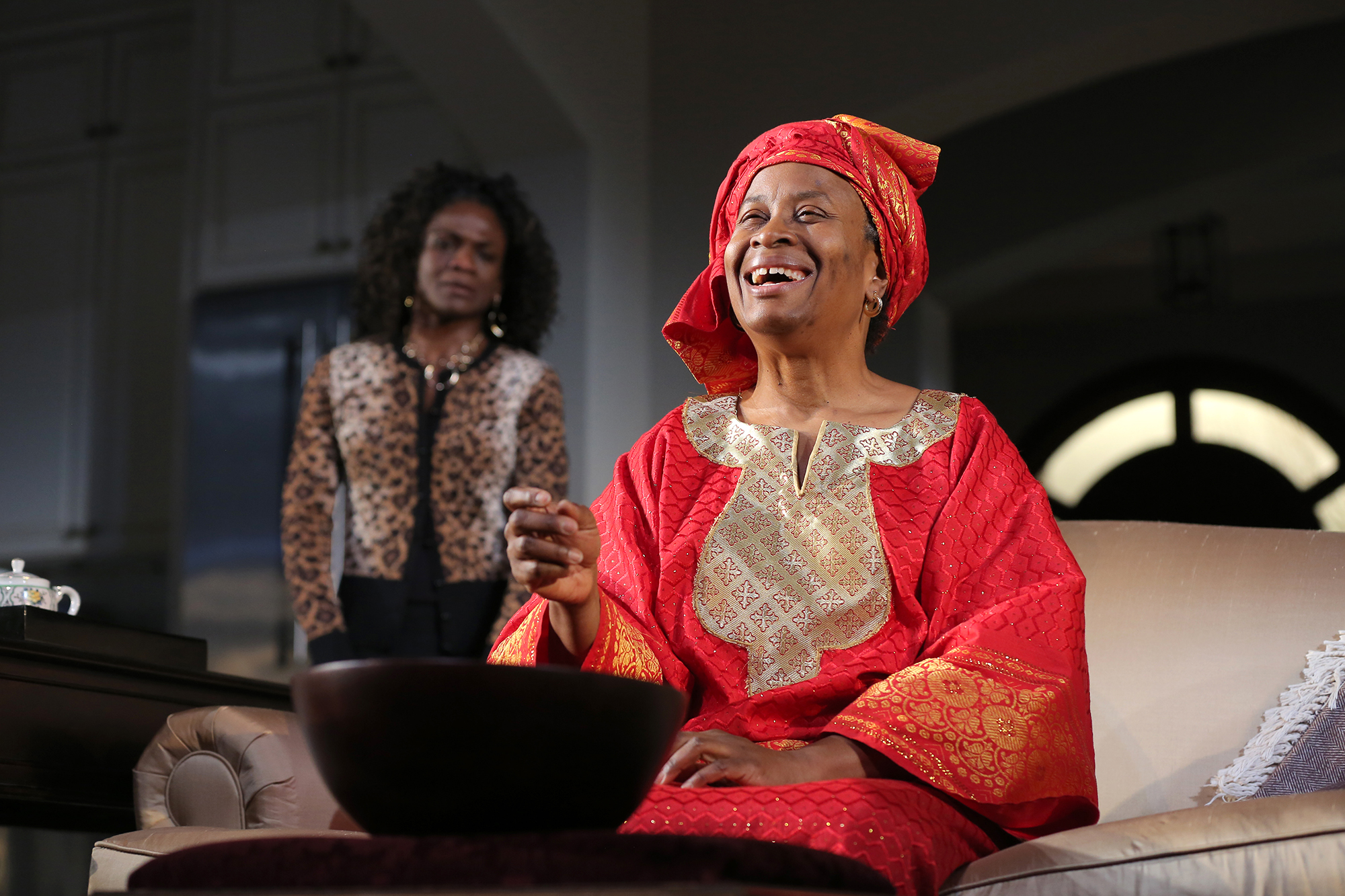
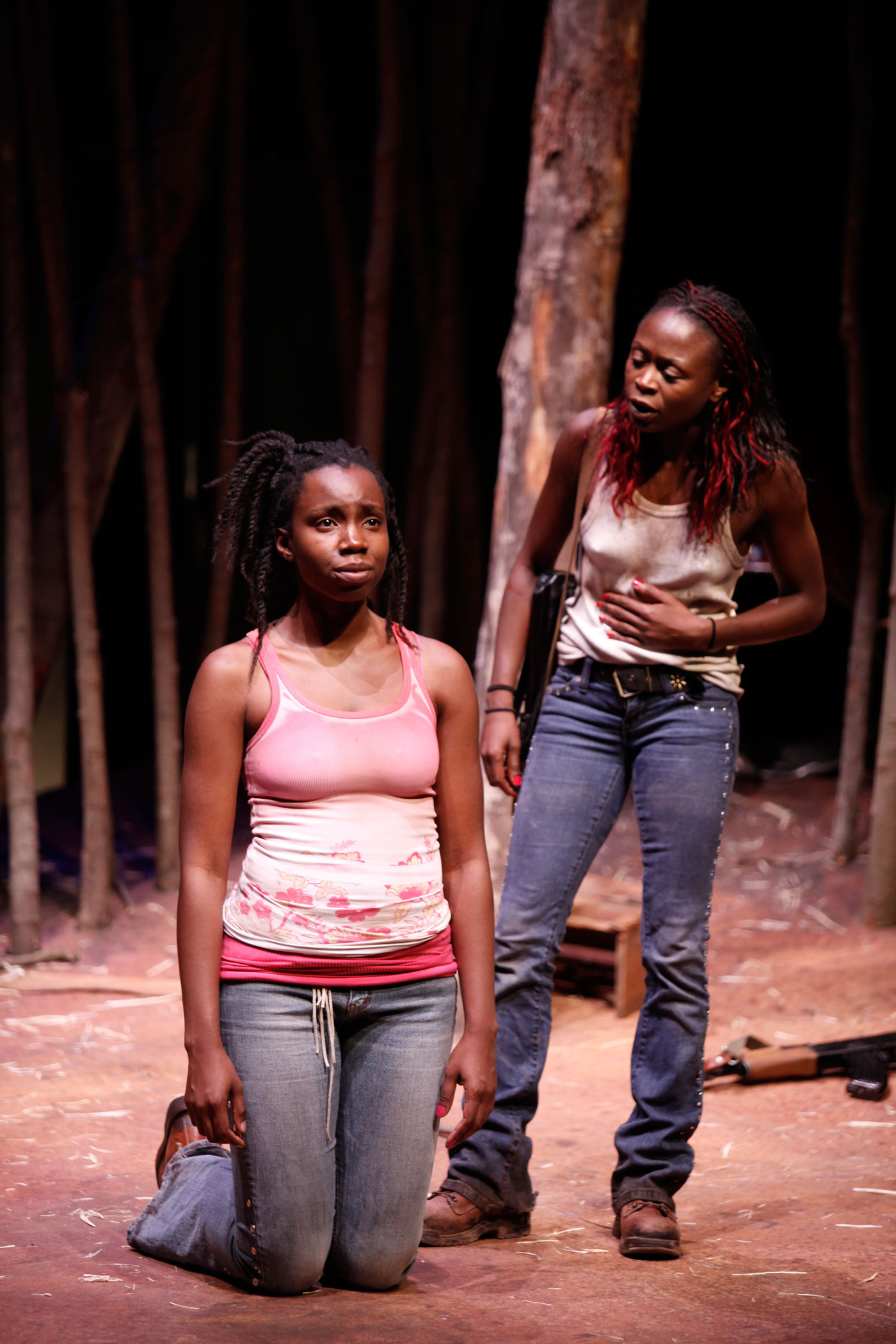 OBIE Award winner Danai Gurira’s Eclipsed, playing through Nov. 14 at the Yale Rep, is set in the camp of a rebel Liberian warlord in 2003. There we meet three women: two are his ‘wives,’ which means: forced into service, sexual and otherwise, for the man they call the C.O. The third woman, younger, has just arrived, and soon becomes #4 (the women refer to each other by number). The absent wife, #2, we learn, has joined the rebel forces as a soldier.
OBIE Award winner Danai Gurira’s Eclipsed, playing through Nov. 14 at the Yale Rep, is set in the camp of a rebel Liberian warlord in 2003. There we meet three women: two are his ‘wives,’ which means: forced into service, sexual and otherwise, for the man they call the C.O. The third woman, younger, has just arrived, and soon becomes #4 (the women refer to each other by number). The absent wife, #2, we learn, has joined the rebel forces as a soldier.